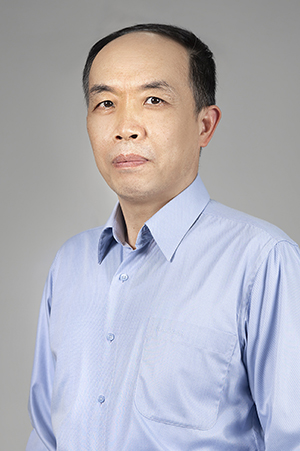Research
Human hPuf-A/KIAA0020 was first identified as a new minor histocompatibility antigen in 2001. Its zebrafish ortholog contains six Pumilio-homology RNA-binding domains and has been shown to participate in the development of eyes and primordial germ cells, but the cellular function of hPuf-A remains unclear. In this report, we showed that hPuf-A predominantly localized in the nucleoli with minor punctate signals in the nucleoplasm. The nucleolar localization of hPuf-A would redistribute to the nucleoplasm after the treatment of RNA polymerase inhibitors (actinomycin D and 5,6-dichlorobenzimidazole riboside) and topoisomerase inhibitors [camptothecin (CPT) and etoposide]. Interestingly, knockdown of hPuf-A sensitized cells to CPT and UV treatment and cells constitutively overexpressing hPuf-A became more resistant to genotoxic exposure. Affinity gel pull-down coupled with mass spectrometric analysis identified PARP-1 as an hPuf-A-interacting protein. hPuf-A specifically interacts with the catalytic domain of PARP-1 and inhibits poly(ADPribosyl)ation of PARP-1 in vitro. Depletion of hPuf-A increased the cleaved PARP-1 and overexpression of hPuf-A lessened PARP-1 cleavage when cells were exposed to CPT and UV light. Collectively, hPuf-A may regulate cellular response to genotoxic stress by inhibiting PARP-1 activity and thus preventing PARP-1 degradation by caspase-3.
Selected Publications
Transcriptional regulation of tristetraprolin by NF-κB signaling in LPS-stimulated macrophages.
Chen YL, Jiang YW, Su YL, Lee SC, Chang MS, Chang CJ
Mol. Biol. Rep. (2013)
Upregulated hPuf-A promotes breast cancer tumorigenesis.
Fan CC, Lee LY, Yu MY, Tzen CY, Chou C, Chang MS
Tumor Biol. (2013)
Disruption of Murine mp29/Syf2/Ntc31 Gene Results in Embryonic Lethality with Aberrant Checkpoint Response.
Chen CH, Chu PC, Lee L, Lien HW, Lin TL, Fan CC, Chi P, Huang CJ, Chang MS
PloS one (2012)
hPuf-A/KIAA0020 Modulates PARP-1 Cleavage upon Genotoxic Stress.
Chang HY, Fan CC, Chu PC, Hong BE, Lee HJ, Chang MS
Cancer research (2011)
Involvement of p29 in DNA damage responses and Fanconi anemia pathway.
Chu PC, Wang TY, Lu YT, Chou CK, Yang YC, Chang MS
Carcinogenesis (2009)
Glycogen synthase kinase 3beta interacts with and phosphorylates the spindle-associated protein astrin.
Cheng TS, Hsiao YL, Lin CC, Yu CT, Hsu CM, Chang MS, Lee CI, Huang CY, Howng SL, Hong YR
The Journal of biological chemistry (2008)
I branching formation in erythroid differentiation is regulated by transcription factor C/EBPα.
Twu YC, Chen CP, Hsieh CY, Tzeng CH, Sun CF, Wang SF, Chang MS, Yu LC.
Blood (2007)
Silencing of astrin induces the p53-dependent apoptosis by suppression of HPV18 E6 expression and sensitizes cells to paclitaxel treatment in HeLa cells.
Yang YC, Hsu YT, Wu CC, Chen HT, Chang MS
Biochemical and biophysical research communications (2006)
Silencing of p29 affects DNA damage responses with UV irradiation.
Chu PC, Yang YC, Lu YT, Chen HT, Yu LC, Chang MS
Cancer research (2006)

 Institute of Biological Chemistry, Academia Sinica
Institute of Biological Chemistry, Academia Sinica
